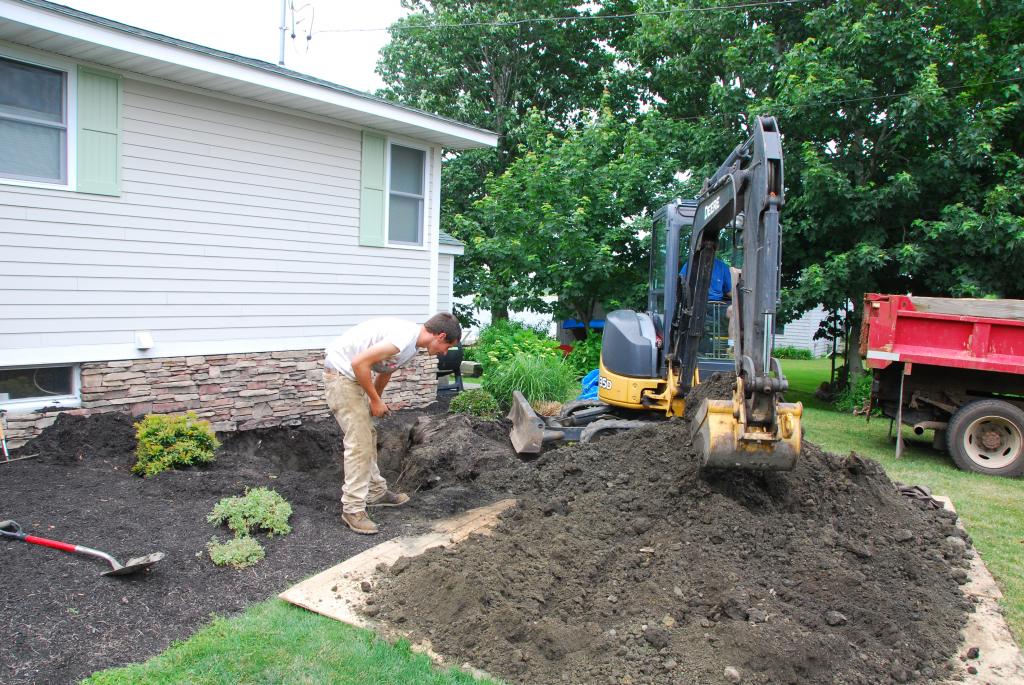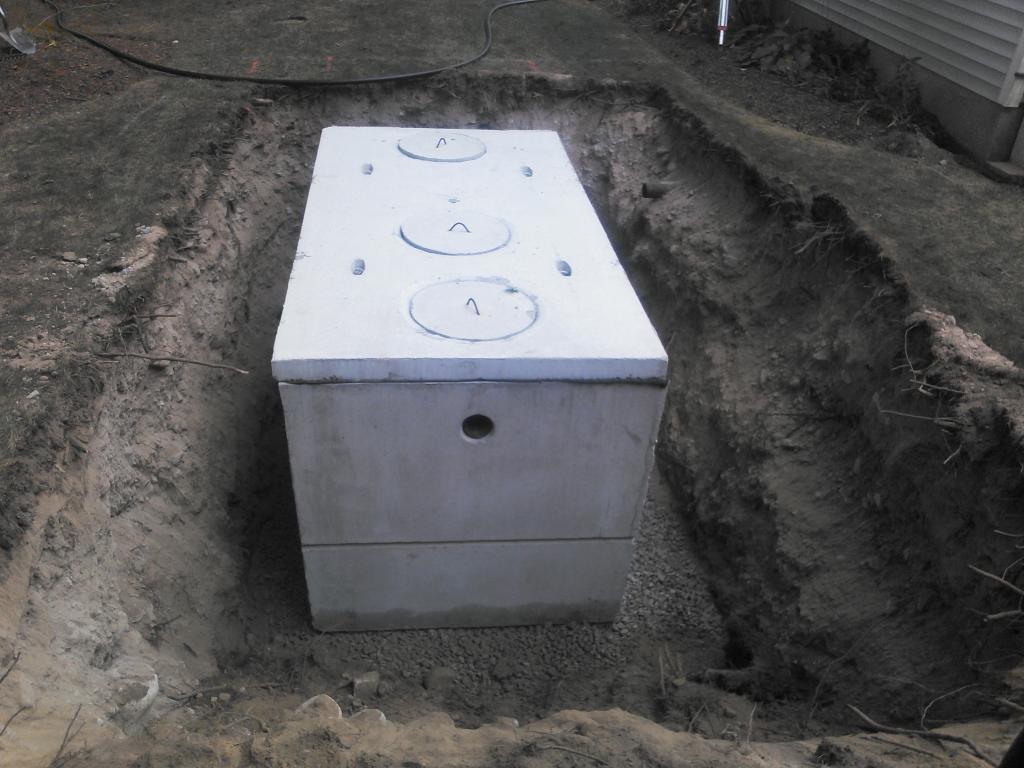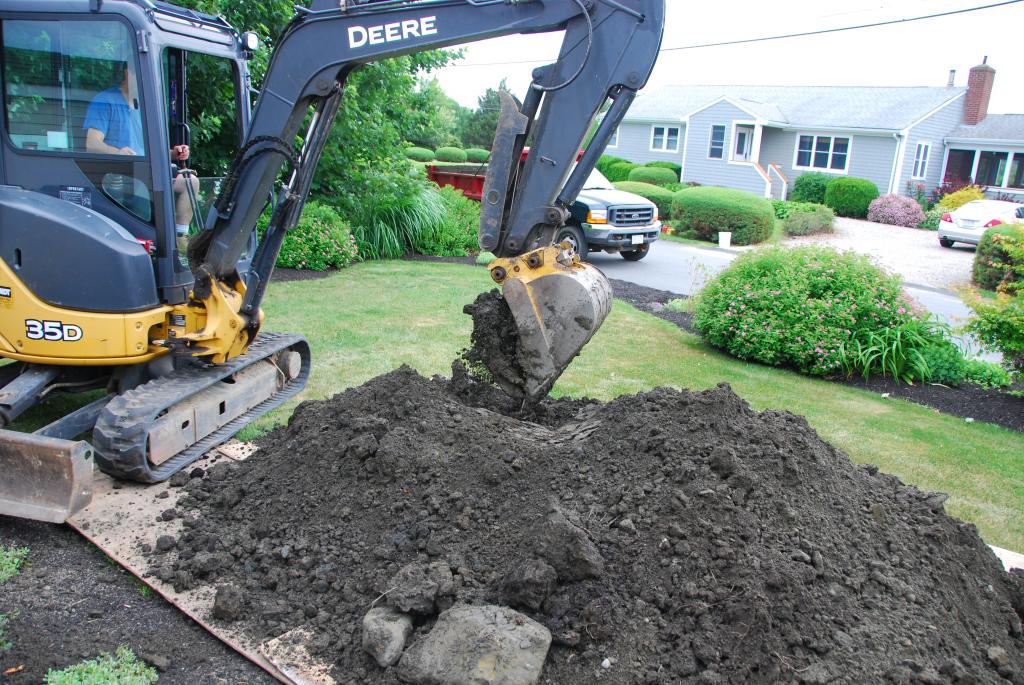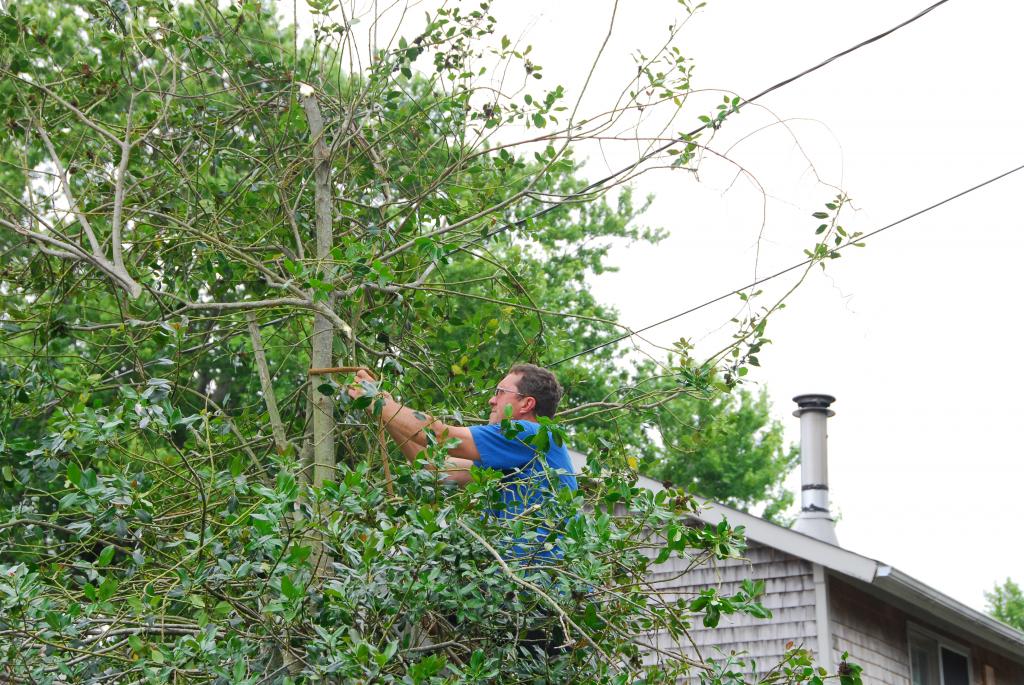How to Choose an Excavating Contractor
(or any Contractor)
When hiring an excavating company keep in mind that excavating is a hazardous business and can wreck havoc on your property and cause personal injury. Review the qualifications of potential contractors carefully. Make sure they are experienced, have a good reputation for customer service, quality, safety, property care, and on time completion of the job.
Below is an extensive list of considerations when hiring a contractor. Read it over and pick the suggestions that fit your job. A small, simple job may only need a few of the assessment steps while a large, difficult, expensive job may require most of the steps.
Have a basic understanding of what needs to be done and what steps are required to do the job well. This will allow you to speak intelligently with the contractor. Some jobs need an excavator, not a landscaper with a bobcat; very few need large equipment from a company specializing in very large jobs. Also, some contractors take shortcuts that reduce the price of the job, but also decrease the useful life of the project (such as putting in inadequate drainage). Speaking intelligently about the job and understanding what the contractor intends to do can help you immensely. There is quite a bit of information available on the internet to help you learn.
Know what quality you're looking for and make sure the contractor is bidding on what you want. Contractors, like most people, learn to do the job a certain way, usually the most common way for your neighborhood. If you want better quality, you may need to look further to find the right person. Beware, many contractors will tell you that some steps and procedures are unnecessary, but if you're informed by a reputable source such as This Old House, you have the unbiased opinion of an expert.
Do they usually work on jobs the same size as yours? Contractors who work on smaller jobs may not have the right equipment or experience to do a larger job. Companies that normally work on very large jobs may be doing your job as a fill in and give you low priority.
When you call the excavating business to discuss your needs do they return the call promptly and professionally. If they don't, consider it the first major negative in your review of their business.
When comparing proposals, compare the price, the steps the contractor plans to use on the job, and the quality of the materials. Make sure it covers everything you need for a good quality job. Also, know why prices are different between contractors. Some contractors will leave steps out or use inferior materials. If the cost is more than 10% less than competitors, he's probably lowballing you. Other companies may increase your costs by doing something you don't need or by using better materials than you feel you need. One approach is to automatically drop the lowest bidder assuming that he's taking shortcuts. However, the highest bidder may not be offering the best job. He may not want the work but is willing to do it if the price is high. Keep in mind that quality and a low price don't mix while quality at a fair price does.
The contractor should be licensed, fully insured (workers' compensation, liability insurance and bonded) and acquire all permits. A contractor willing to skip these steps may be willing to take short cuts on your job and if someone is hurt or something damaged, you may be the person to pay the bill.
Look for someone with many years experience, particularly if the work being done is skilled, such as drainage systems, or close to well - landscaped property, buildings, driveways, utilities, shrubs or walls. The type of experience should match the type of work that you want done. An excavator experienced in digging for a new home foundation is not the same thing as an excavator experienced in installing a drainage system.
Check references on recent jobs and the Better Business Bureau or Angie's List, especially if the work to be done requires someone who is highly skilled. Find out if any subcontractors will be used and check their references, too.
Check out his website. A sloppy or nondescript site may be an indication of the type work he does. Does it tell you anything about his business philosophy? Who does he show for testimonials? Testimonials by professionals who know fine workmanship are a good indication of a quality excavator.
Try to plan out when the work will be done and how long it will take. Will the contractor work right through the job or will it be interrupted by other jobs or waiting for a subcontractor.
Down payments are often requested to protect the contractor, particularly if a lot of materials have to be purchased in advance. We recommend that the down payment be a maximum of 1/3 the expected total price. Don't make a final payment until everything is finished to your satisfaction.
If there are underground utilities in the area such as water, sewer, and gas lines, make sure the contractor calls Dig Safe to have the utilities marked off. This is not an area to take a shortcut.
Once the job begins, check it out daily. If you disagree with something being done, the sooner you talk to him the easier it is to correct the work. But, be considerate of the contractor's time. Constant questions and interruptions will only slow the job down.
Once you've weeded out the bad apples and identified properly experienced contractors, try to identify the contractors who like their work and are good at it.
Harvey Mackay






